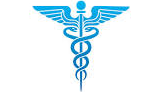Cellular Ecophysiology of Microbe: Hydrocarbon and Lipid Interactions
 -15%
portes grátis
-15%
portes grátis
Cellular Ecophysiology of Microbe: Hydrocarbon and Lipid Interactions
Krell, Tino
Springer International Publishing AG
04/2018
599
Dura
Inglês
9783319505404
15 a 20 dias
1371












